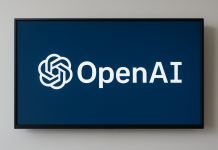October has not been kind to cryptocurrency, with $730 million lost due to 18 breaches this month alone, bringing the total loss to $3 billion by 2022.
With decentralized finance or DeFi, as the primary target, it’s becoming a severe enough problem that blockchain analytics firm Chainalysis, which specializes in tracking cryptocurrencies, may have been premature in declaring 2021 The Year of the Hack.
“What’s special about the crypto world lately is the velocity at which hacking is increasing,” Kim Grauer, Chainalysis’ head of research stated.
“But that’s not what we’ve been witnessing,” she continued.
Instead, 2022 is only $220 million away from breaking the record of $3.2 billion in stolen monies set in 2021.
Grauer also stated that DeFi is in peril.
“The reputational danger is enormous,” she stated. “I can’t stress that enough. Because a hack occurs every day, every trader and everyone participating in DeFi is aware that they might be the victim of a hack. And that is not conducive to long-term growth. That is not good for the industry. That is, in fact, a fundamental reason why individuals are unlikely to enter DeFi and test the waters.”
The More Things Change, the More
At the same time, Grauer noted that the challenge is not insurmountable, as seen by the scarcity of attacks against centralized exchanges.
That was not the situation “only a few years ago in 2019,” when centralized exchanges were being breached at a frightening rate.
“At the moment, it felt insurmountable,” Grauer added. “However, we are currently in a completely different situation in which people understand the security of centralized exchanges.” So the aim is that DeFi and decentralized services will follow the same path.”
DeFi is learning the importance of rigorous and continuing code audits, as well as other technical solutions, she added. Another reason is that businesses — especially DeFi developers — cannot afford to put off starting code audits and using other tools to secure their projects. This can be more difficult for DeFi projects, which, although being decentralized, sometimes involve voting mechanisms that require some degree of agreement.
However, hacking is not unique to the cryptocurrency industry, according to Grauer, who cited hacks, phishing schemes, and even old-fashioned bank robberies that conventional finance, or TradFi, has faced since its start.











